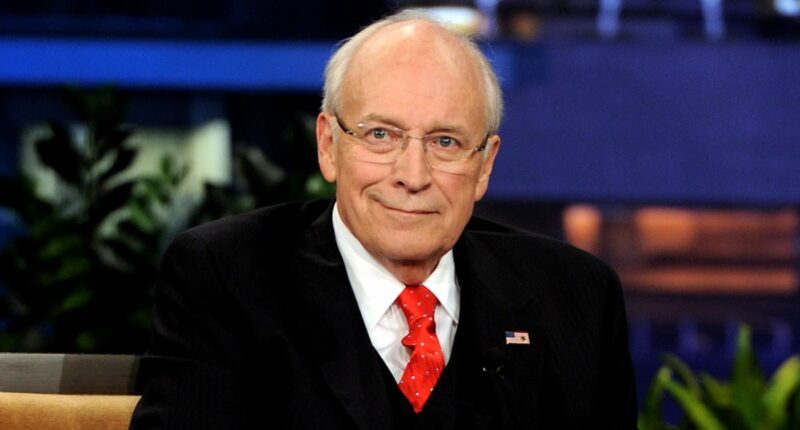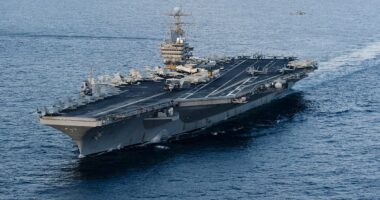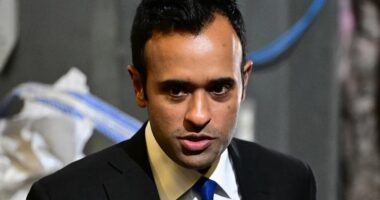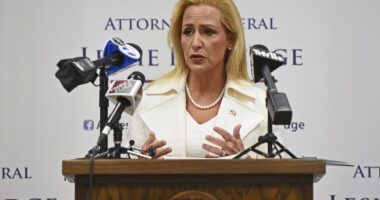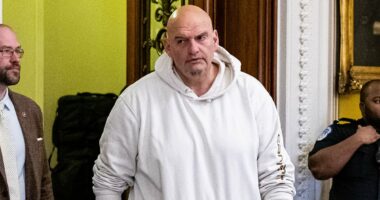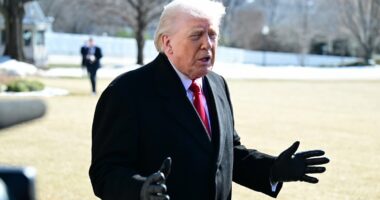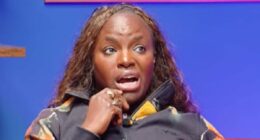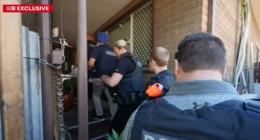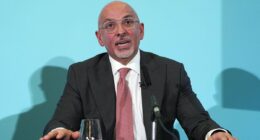Share this @internewscast.com

The funeral of former Vice President Dick Cheney is commencing with notable absences. Both President Donald Trump and Vice President JD Vance are expected to miss the memorial service, scheduled for late Thursday morning at the Washington National Cathedral. Trump’s itinerary for the day does not include the event, and Vance is engaged with a separate commitment in Washington earlier that morning. Representatives for both have not provided any comments regarding their absence.

Cheney passed away on November 3 at the age of 84 due to complications arising from pneumonia and cardiac and vascular disease. In a surprising political twist last year, Cheney, who was once a powerful figure in the early 2000s, endorsed a Democrat for the presidency. He supported Vice President Kamala Harris’s campaign, echoing the position of his daughter, former GOP Representative Liz Cheney. The younger Cheney’s political career faltered after she stood against Trump during her investigation into the January 6 Capitol events.

Liz Cheney actively campaigned for Harris, aiming to attract non-MAGA Republicans and independents. While Trump and Vance will not be in attendance at the service, former President Joe Biden, the oldest living U.S. president, intends to pay his respects. Notably, the funeral coincides with Biden’s 83rd birthday. A Biden family spokesperson has confirmed their presence to the Daily Mail. However, it remains uncertain if Harris, who now resides in California, will attend the service.

Her spokesperson did not respond to requests for comment. Harris posted on X that she was ‘saddened’ to hear of Cheney’s death, calling him a ‘devoted public servant.’ Representatives for the Obamas and Clintons also didn’t disclose if the former first families would attend.

Former President George W. Bush will be eulogizing Cheney, along with Liz Cheney, Cheney’s physician Dr. Jonathan Reiner – as the vice president suffered from heart problems for years, resulting in a 2012 heart transplant – and Pete Williams, who served as a Cheney staffer before becoming NBC News’ Department of Justice correspondent.

The White House has been uncharacteristically quiet about Cheney’s funeral. Trump never sent out a statement, nor did he mouth off about Cheney on Truth Social, with press secretary Karoline Leavitt only acknowledging that the White House was following the law by having flags at half-staff. When Cheney endorsed Harris in September 2024, he said ‘there has never been an individual who is a greater threat to our republic than Donald Trump.’

‘He tried to steal the last election using lies and violence to keep himself in power after the voters had rejected him,’ Cheney said in a statement. ‘He can never be trusted with power again.’ Trump, in turn, has been critical of Bush 43 and Cheney’s tenure for years, blasting them for embroiling the U.S. in ‘forever wars’ like Afghanistan and Iraq. Cheney did, however, attend Trump’s 2017 inauguration.

But like his daughter, Liz, he was appalled by what he saw on January 6 , making a statement by attending an event in the Capitol Building to mark he attack’s one-year anniversary on January 6, 2022. He was also on hand when Liz Cheney conceded to Wyoming Representative Harriet Hageman, the more MAGA-aligned candidate who Trump backed. As Cheney’s health failed, he attended fewer and fewer public events.

He missed President Jimmy Carter’s funeral in early January of this year – an event that saw most living presidents and vice presidents from both parties come together. Cheney was born on January 30, 1941 in Lincoln, Nebraska but became known as one of the prominent U.S. politicians from Wyoming, representing the state in Congress after serving as Republican President Gerald Ford’s chief of staff. He went on to become President George H.W. Bush’s Secretary of Defense.

Cheney became CEO of Halliburton and during that time was chosen by George W. Bush to run his vice presidential selection committee. Bush surprisingly asked Cheney to serve on the ticket. He earned the ‘Darth Vader’ nickname for his role in pushing for U.S. military involvement in Afghanistan – on the heels of the September 11, 2001 terror attacks – and later the invasion of Iraq, which became a political quagmire.

Cheney also supported ‘enhanced interrogation’ methods like waterboarding, which critics said amounted to torture. Despite that, his endorsement of Harris in the last year of his life improved his reputation among Democrats.
